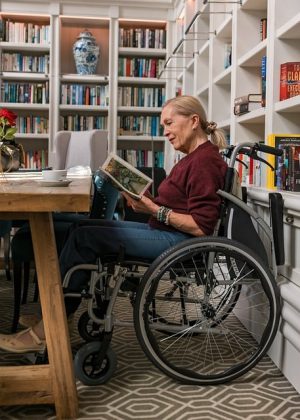Elderly Companion Services are essential in combating social isolation and loneliness among seniors, which can exacerbate health issues like depression and cognitive decline. These services offer companionship, daily assistance, and structured activities to improve quality of life, maintain mental well-being, and provide access to community resources. By fostering a sense of belonging and encouraging participation in engaging activities, Elderly Companion Services play a vital role in enhancing the independence and self-worth of isolated seniors, leveraging both in-person interactions and technology to reduce isolation.
Social interaction is vital for seniors’ well-being, yet isolation remains a pressing issue. This article explores the profound impact of loneliness on isolated seniors and presents practical solutions. We delve into the significance of elderly companion services, which offer companionship and support, alleviating social isolation. Additionally, we provide effective strategies to encourage social engagement, combating loneliness through community activities, technology, and fostering meaningful connections, ultimately enhancing the quality of life for our aging population.
- Understanding the Impact of Isolation on Seniors
- The Role of Elderly Companion Services
- Strategies to Encourage Social Interaction and Combat Loneliness
Understanding the Impact of Isolation on Seniors

The isolation and loneliness that many elderly individuals experience can have profound effects on their physical and mental well-being. Seniors often find themselves cut off from social connections due to various factors such as living alone, mobility issues, or the passing of loved ones. This sense of detachment can lead to increased stress, depression, and even cognitive decline. In fact, research highlights that isolation is a significant risk factor for health problems among the elderly population.
Elderly Companion Services play a pivotal role in mitigating these effects by providing companionship and encouraging social interaction. These services offer a solution to bridge the gap between seniors who desire engagement and those who might struggle to connect with others. Through regular visits, friendly conversations, and shared activities, companion services can significantly enhance the quality of life for isolated seniors.
The Role of Elderly Companion Services

Elderly Companion Services play a pivotal role in bridging the gap of social isolation among seniors who may struggle with mobility or live alone. These services offer companionship, assistance with daily tasks, and opportunities for meaningful interaction that can enrich the lives of older adults. Through structured activities, conversations, and shared experiences, companions foster a sense of belonging and combat the loneliness often associated with aging in place.
By providing social stimulation, Elderly Companion Services help seniors maintain cognitive function, enhance their mental well-being, and improve overall quality of life. Companions can also act as liaison between the senior and community resources, ensuring access to necessary healthcare services, social events, and support networks. This holistic approach not only addresses physical needs but also cultivates a supportive environment that encourages independence and self-worth for isolated seniors.
Strategies to Encourage Social Interaction and Combat Loneliness

Loneliness among isolated seniors is a growing concern, but there are numerous strategies to encourage social interaction and combat this issue. One effective approach is to facilitate community engagement through organized activities tailored to their interests. These can range from book clubs and hobby groups to technology workshops, ensuring the elderly feel included and valued within their communities. Elderly Companion Services play a pivotal role here, offering personalized support to help seniors participate in these activities safely and comfortably.
Additionally, leveraging technology is a modern solution with significant potential. Video calls and social media platforms can bridge the gap for those who find leaving home challenging. These tools enable them to connect with family, friends, and peers, fostering a sense of belonging and reducing feelings of isolation. Companion services can assist seniors in mastering these technologies, promoting digital literacy among the elderly population.
Social isolation among seniors is a growing concern, but by harnessing the power of elderly companion services and implementing effective strategies, we can combat loneliness and enhance their quality of life. These initiatives not only provide companionship but also offer a safety net, promoting active participation in society. By fostering meaningful connections, we can create a supportive environment that respects the dignity of our aging population. Elderly companion services play a vital role in ensuring isolated seniors feel valued and connected to their communities.






